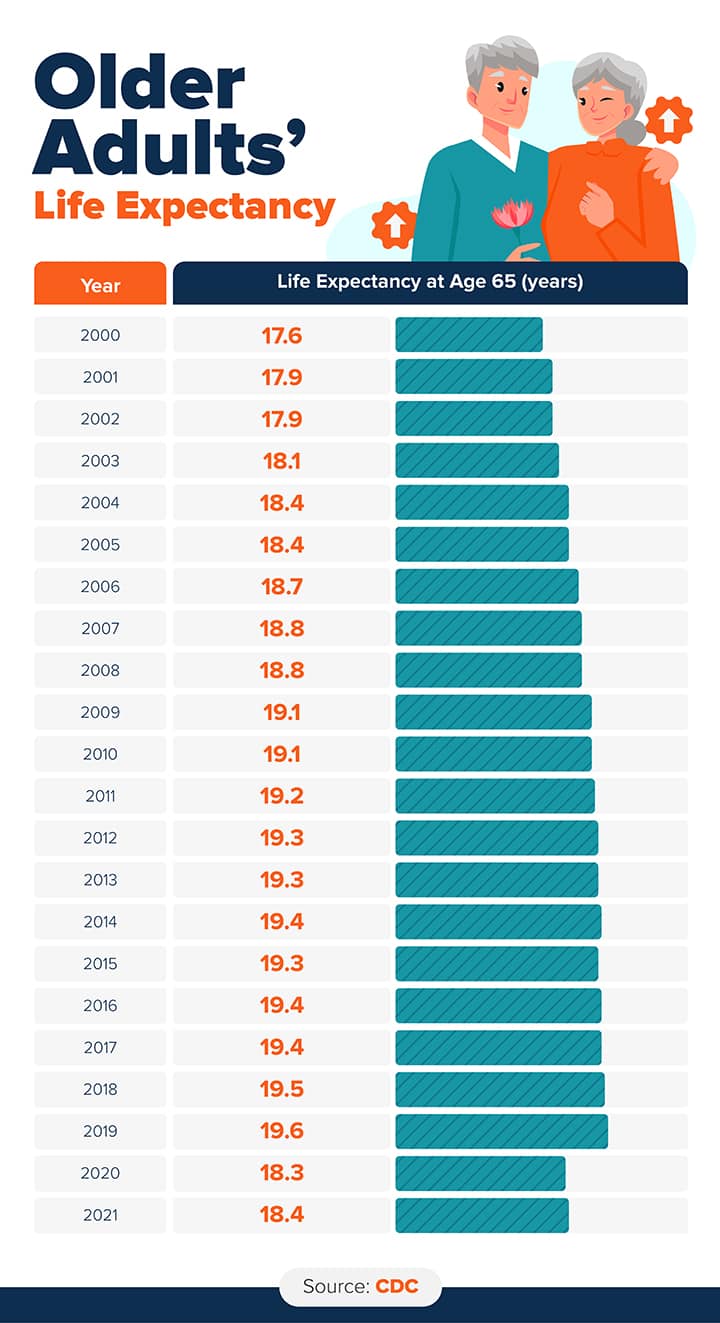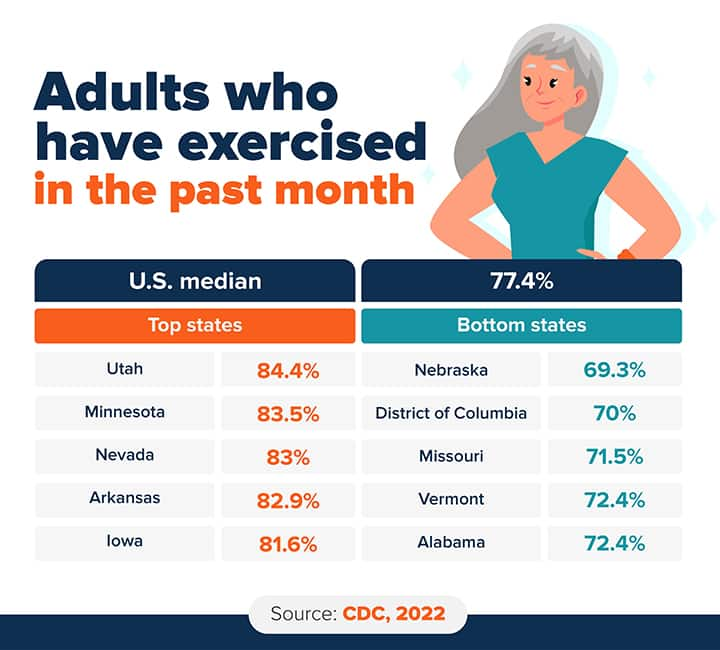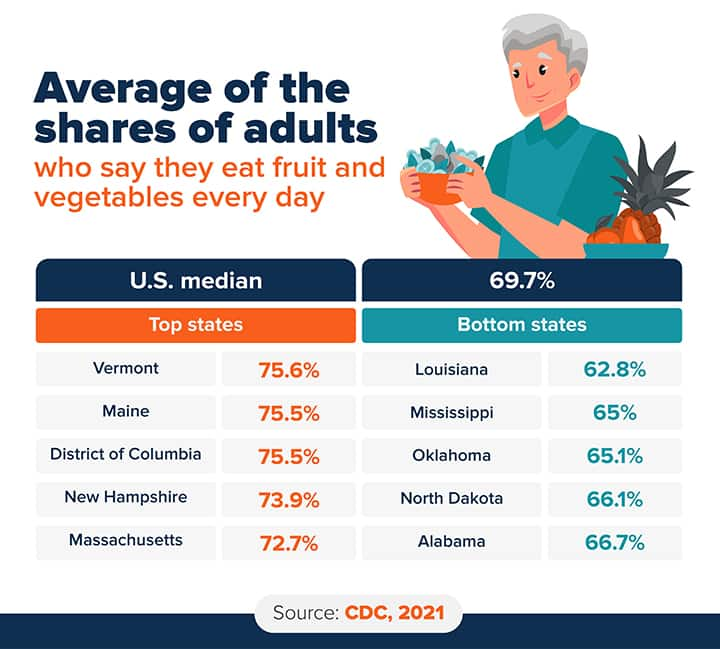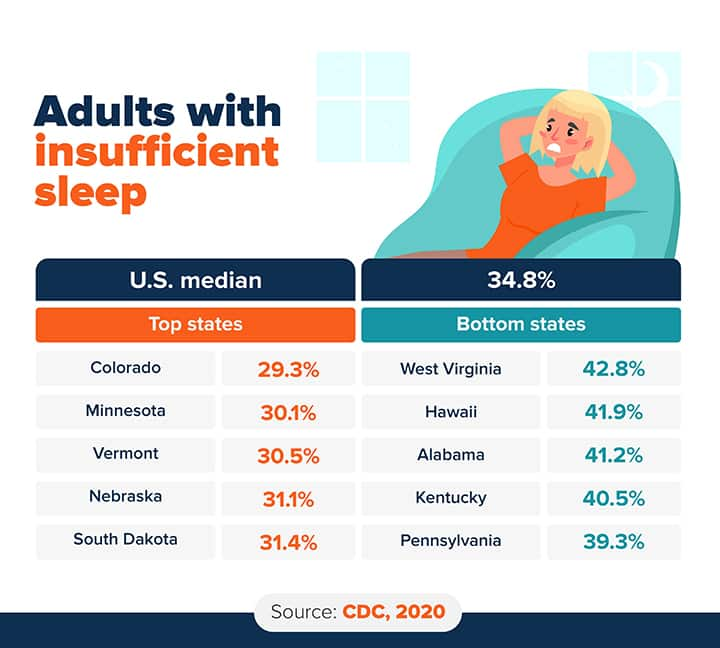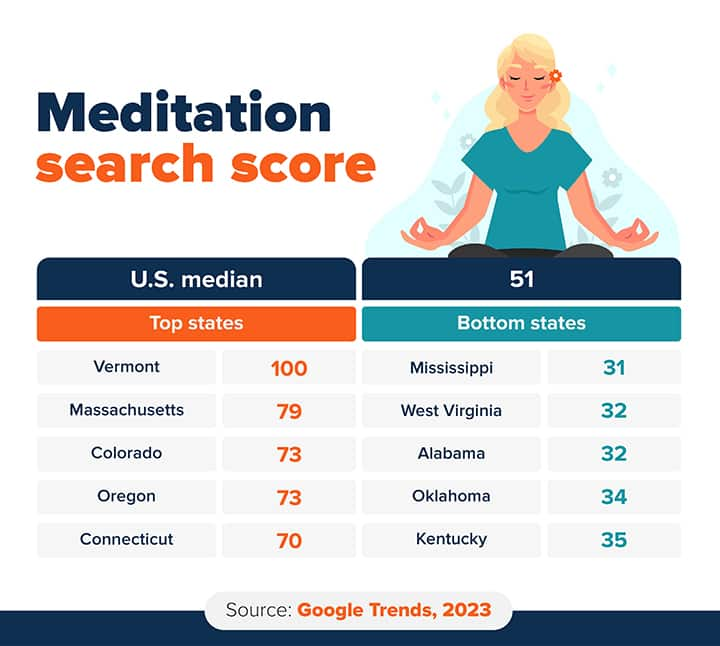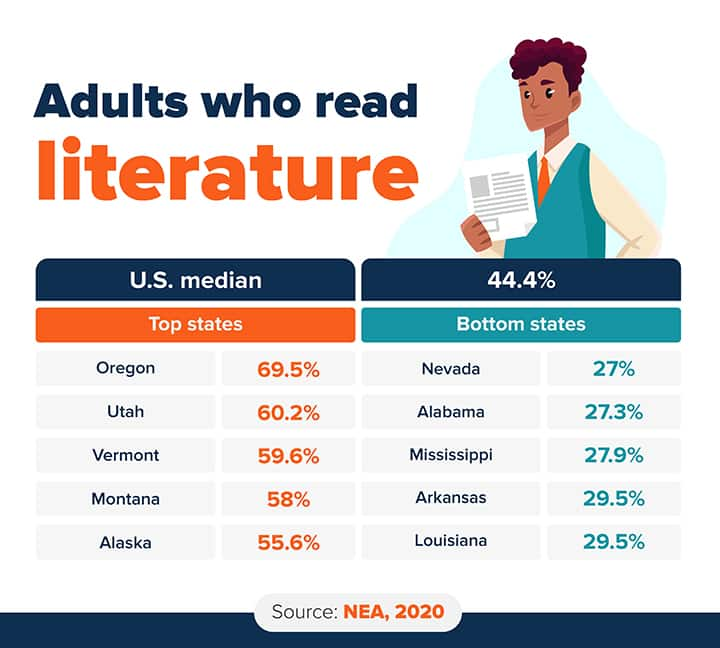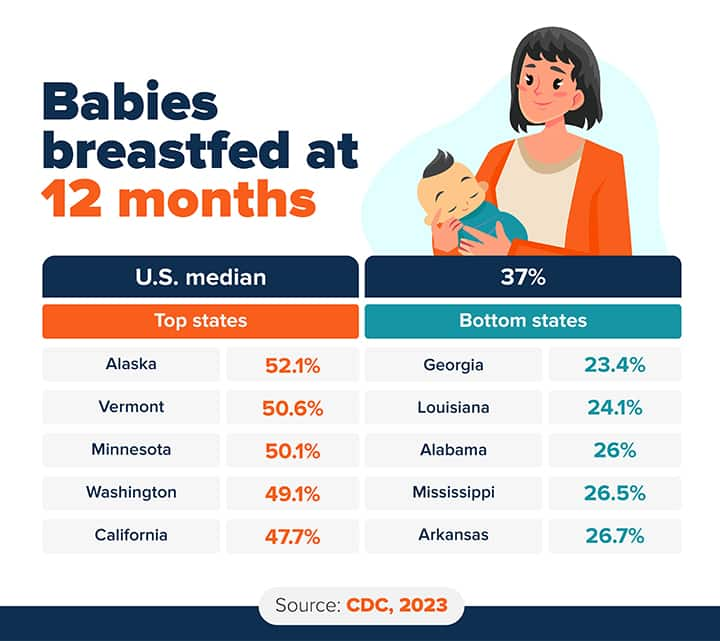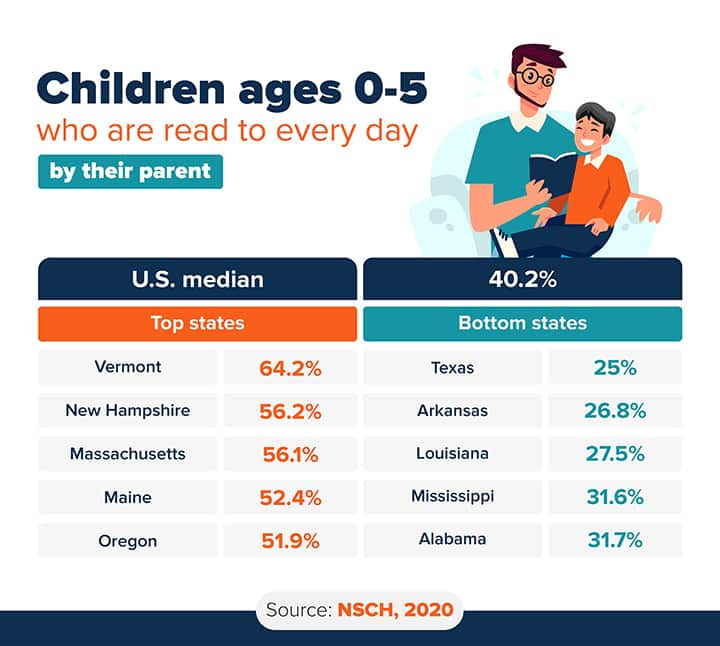You may have heard that the human brain is the world's most powerful computer, and for good reason. Information in the brain travels up to 268 miles per hour—and given that it has billions of neurons, the mind's storage capacity (aka cognitive reserve) is effectively unlimited.
Yet, much like a computer, as we age, our brains can become a bit…glitchy. (Where are those car keys?) It's no surprise, then, that brain health is looming large on many of our minds, especially as more of us are living longer and reaching a stage when healthy memory and aging become top of mind for most older adults. Upon reaching age 65, Americans can expect to live an additional 18.4 more years according to the CDC—a longer life expectancy than their parents' generation. Maintaining healthy neural connections throughout those golden years can make a big difference when it comes to day-to-day quality of life.
Supporting brain health isn't only for older adults, though. Parenting decisions such as whether to breastfeed and read to children can have a lifelong impact on the brain, and people early- and mid-career who are looking to support better concentration or faster learning may also be seeking ways to bolster their cognition.
Everyday choices such as exercising, nourishing your body with brain-friendly nutrients (through diet or supplements), getting quality sleep, maintaining social connections and keeping your brain intellectually stimulated all have a well-documented impact on cognitive function across varied age demographics.
Depending upon where you live, though, these brain-healthy habits may be commonplace…or make you the exception and not the rule.
U.S. states with the best brain health habits
So where in the U.S. are individuals more likely than others to engage in these brain-boosting activities? To determine the answer to this question, Life Extension analyzed seven metrics to determine the states with the best brain health habits, relying on data from the Centers for Disease Control and Prevention, the National Endowment for the Arts, the National Survey of Children's Health and Google Trends.
- Frequency of exercise
- Consumption of fruits and vegetables
- Hours slept per night
- Interest in meditation
- Pleasure reading
- Children age 5 and under who are read to every night
- Breastfeeding data
Note: The complete methodology with links to all data sources is at the bottom of this report.
Key findings
- New England dominates the top 10: Vermont ranked first in good brain health habits, with New Hampshire, Massachusetts and Maine all landing among the top 10. Vermont, for example, has some of the highest rates of reading for pleasure (59.6%) and reading to children (64.2% of young kids are read to every day). Healthy eating was a big factor in Maine, where an average of 75.5% of adults eat fruit or vegetables every day.
- Louisiana is the worst state: Few adults read recreationally (29.5%), and few babies are still breastfed at 12 months (24.1%). The state famous for Fat Tuesday and beignets also has a low average rate of fruit and vegetable consumption (62.8%).
- Notable outliers: We saw a number of states that truly were a mixed bag. In No. 32 Hawaii, for example, 47.3% of babies are breastfed at 12 months, much higher than the national median of 37%. And in No. 45 Nevada, 83% of adults say they've worked out in the past month, one of the highest rates of regular physical activity in the U.S.
Note: Please see the methodology section at the conclusion of this article for how these data points were weighed and scored to determine the "winners" and "losers" among the states.
Best states
Across the board, Vermont is the best state for brain health habits. In the Green Mountain State, 59.6% of adults read literature and 64.2% of young children are read to every day, while the breastfeeding rate at 12 months is 50.6%. It's also the state with the most interest in meditation, scoring 100 on the Google Trends search index.
Oregon, Colorado, the District of Columbia and Massachusetts rounded out the top five. They all had high rates of fruit and vegetable consumption (75.5% in D.C.) and lower rates of insufficient sleep (just 29.3% of Coloradans report getting fewer than seven hours per night). Oregon has the highest adult reading rate in the U.S. at 69.5%, while in Massachusetts 56.1% of young children are read to daily, one of the country's highest levels.
In general, the top-ranked states tend to eat fruits and vegetables every day, get enough sleep, read literature for fun and to their children, breastfeed for longer and have an interest in meditation. Interestingly, regular exercise had a weaker association with a state's overall score than the other six metrics.
Worst states
On the flip side, Louisiana ranked as the worst state for brain health habits. It lands among the bottom three states for fruit and vegetable consumption (62.8%), breastfeeding at 12 months (24.1%) and reading to children (27.5%).
Mississippi, Alabama, Arkansas and West Virginia also landed in the bottom five. No. 50 Mississippi has the least interest in meditation in the country, and one of the lowest reading rates at 27.9%. But the worst-ranked states tended to score poorly across the board, with No. 49 Alabama among the worst three states for sleep (41.2% of adults don't get enough sleep), meditation interest, breastfeeding (26%) and reading for fun (27.3% of adults) and to their children (27.5%).
There were some bright spots, though, with No. 48 Arkansas and No. 46 Oklahoma reporting some of the highest exercise rates in the country (82.9% and 81.5%, respectively). And in No. 36 South Carolina, 50.8% of adults said they read literature for fun, above the national median of 44.4%.
By the metrics
Exercise
Regular exercise isn't just key to your physical health—according to the CDC, it also helps support a healthy brain. Physical activity has been positively associated with problem-solving, memory and mental health. Utah ranks No. 1 with 84.4% of adults saying they've worked out in the past month, followed by Minnesota and Nevada. Nebraska ranks last, with a past-month exercise rate of 69.3% in 2022.
Healthy eating
A balanced diet rich in essential nutrients, especially those found in leafy greens and berries, is tied to "better brainpower," according to Harvard Health. For this metric, we averaged the shares of adults who say they eat fruit and those who say they eat vegetables every day. Vermont ranks No. 1, with an average of 75.6%, followed by Maine and Washington, D.C. Louisiana ranks last, with an average of 62.8% in 2021.
Sleep
Sleep gives the brain time to create and maintain memory pathways, which helps with concentration and thinking, reports the NIH. For this metric, a lower percentage was better. Colorado ranks No. 1 with 29.3% of adults saying they don't get enough sleep, followed by Minnesota and Vermont. West Virginia ranks last, with 42.8% of adults getting insufficient sleep in 2022.
Meditation
Mindfulness and meditation can foster better attention, memory and cognition, and supports the parts of the brain that handle learning and self-awareness according to the NIH. Vermont ranks No. 1 with a meditation search score of 100, followed by Massachusetts and Colorado. Mississippi ranks last, with a score of 31 in 2023.
Reading literature
The University of Illinois Urbana-Champaign reported that over time, reading for pleasure strengthens memory in adults by stimulating the brain. Oregon ranks No. 1 with 69.5% of adults saying they read literature for fun, followed by Utah and Vermont. Nevada ranks last, with a reading rate of 27% in 2020.
Breastfeeding
Prolonged breastfeeding provides essential nutrients for babies and health benefits for mothers. According to an NIH study, babies who are breastfed for at least nine months have significantly stronger cognitive development than those who aren't breastfed. Alaska ranks No. 1 for breastfeeding, given 52.1% of babies born in 2020 were still breastfed at 12 months. It was followed by Vermont and Minnesota, while Georgia ranks last, with a breastfeeding rate of 23.4%.
Reading to children
According to research published by the U.S. Department of Health and Human Services, reading to young children supports their language and literacy skills, which lays a strong foundation for their cognitive development. Vermont ranks No. 1 with 64.2% of kids age 5 or younger being read to every day by their parents or other family members, followed by New Hampshire and Massachusetts. Texas ranks last, with 25% of young children being read to every day in 2020.
Other ways to promote brain health
In addition to the habits measured by this study, social engagement and/or hobbies are well-known ways to nurture your noggin, Neurology reported. Interaction with friends, neighbors, family and colleagues not only enriches your emotional and mental well-being, but those daily connections keep those neural synapses firing. Hobbies, meanwhile, often encourage social engagement, and even those that don't will keep your brain active, often requiring you to learn new skills (whether that's a knitting technique or a gaming strategy).
6 tips to optimize brain health
Supplements can help support healthy lifestyles to promote a holistic approach to brain health and overall well-being. Here are six tips to support brain health:
1. Manage your stress
According to the NIH, everyday stress can impact your cognitive well-being, so try to set aside time for self-care to help yourself relax, whether that means working out, listening to music or spending time with loved ones.
2. Invest time in learning new things
It's critical to keep your brain sharp, and hobbies like reading or listening to music can help, Harvard Medical School has reported. You can also try nootropic, a nutrient that encourages healthy neuro-processing speeds, learning and memory.
3. Support a healthy response to inflammation
According to the Cleveland Clinic, homocysteine is a health marker that indicates whether your body is responding to inflammation in a healthy way, including within the brain. Nutrients like vitamin B12 can promote a healthy inflammatory response and maintain normal, balanced homocysteine levels.
4. Feed your brain
The Mediterranean diet has been lauded by the NIH's National Institute on Aging for both its brain and heart health benefits. Staples of this brain-healthy approach to eating include fruits, vegetables, whole grains, legumes and healthy fats from fish, olive oil, avocado and nuts. A "spinoff" of this diet, Mediterranean-DASH, recommends similar foods but also prohibits high-sodium options to promote healthy blood pressure levels.
5. Bolster your nutrition
In addition to a well-balanced diet rich in nutrients, you can try vitamins and minerals that support cognitive function and fill in any gaps. For example, if you're not a fan of fatty fish like salmon, omega-3 supplements can ensure you're getting enough of a nutrient that researchers at the University of Texas San Antonio have linked to brain function. (Not sure where to start? Take a brain health quiz for personalized recommendations.)
6. Prioritize quality sleep
The number of hours you sleep is important to consolidate memory, but so is the quality of your sleep, as per the American Brain Foundation. Melatonin and magnesium can help improve sleep patterns and quality.
Conclusion
Overall, our analysis offers insight into the factors driving cognitive well-being across the U.S. States where people prioritize a healthy diet, sleep, mental stimulation and breastfeeding tend to perform better, though Americans in a handful of poorly ranked states do practice some of these brain-boosting habits, notably exercise. The findings underscore the importance of proactive efforts to promote brain health, which can also improve the quality of life for Americans of all ages.
Methodology
We analyzed seven metrics to determine the states with the best brain health habits, relying on data from the Centers for Disease Control and Prevention, the National Endowment for the Arts, the National Survey of Children's Health and Google Trends. We used a Z-score distribution to scale each metric relative to the mean across all 50 states and Washington, D.C., and capped outliers at 3. We multiplied the insufficient sleep metric by -1 because a higher rate was considered to be negative. A state's overall ranking was calculated using its average Z-score across the seven metrics. Here's a closer look at the metrics we used:
- Share of adults who have exercised in the past month (CDC, 2022)
- Average of the percentages of adults who say they eat fruit and vegetables every day (CDC, 2021)
- Share of adults with less than seven hours of sleep per night (CDC, 2020)
- Meditation search interest score (Google Trends, 2023)
- Share of adults who read novels, short stories, poetry or plays for leisure in the past year (NEA, 2020)
- Share of babies born in 2020 who were breastfed at 12 months old (CDC, 2023)
- Share of children ages 0-5 whose parents or family members read to them every day (NSCH, 2020)


